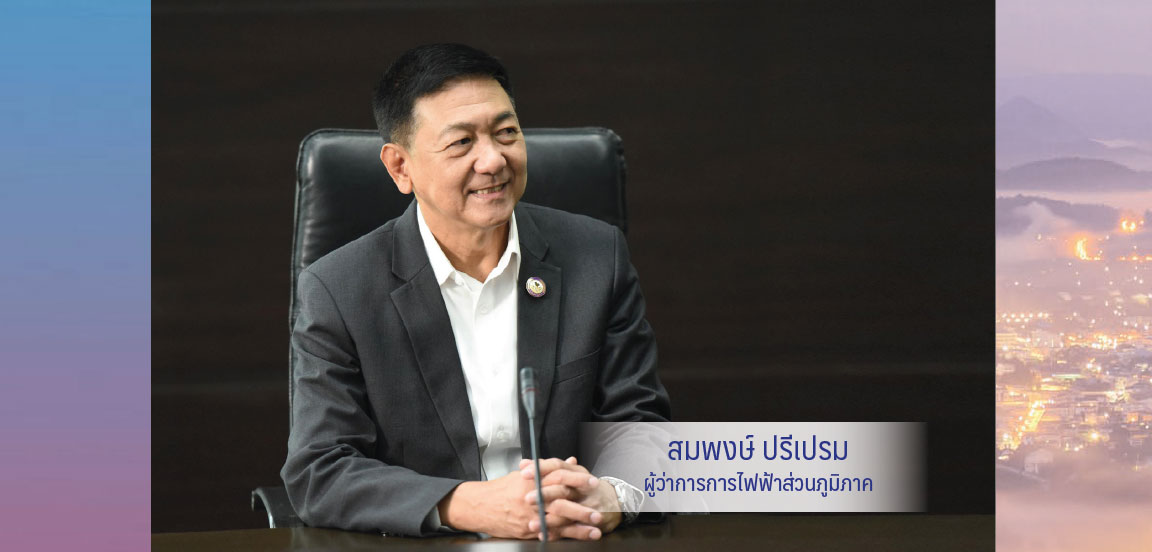Sompong Preeprem
Provincial Electricity Authority Governor
The Provincial Electricity Authority (PEA) was established under the Provincial Electricity Authority Act. PEA is a government enterprise under the Ministry of Interior and operates its main business of producing, procuring, acquiring, delivering, and distributing electric power to people in all provincial regions throughout Thailand except for Bangkok, Nonthaburi and Samut Prakan. PEA also operates other businesses related to electric power service both in terms of supplementary business and new business.
Mr. Sompong Preeprem, Governor of the Provincial Electricity Authority said, “PEA has 74 provinces under its responsibility for electricity distribution, accounting for 99 percent of Thailand’s area and 20 million electricity accounts (about 58 million people). The main policy is to distribute electricity to every household including rural areas and island areas. However, in some areas, PEA is not permitted by law to provide services, such as reserved forest areas and restricted areas.”

“PEA has developed a 5-year long-term plan, with a project to expand the areas for new residents in every household to get access to electricity. There are also social activities that we got budget allocation, such as projects under The Office of Her Royal Highness Princess Maha Chakri Sirindhorn’s Projects (OPSP) for weir construction, reforestation and public health” said Governor Sompong.
When asked about working with the research team from the National Energy Technology Center (ENTEC), Governor Sompong said, “PEA has supported the budget and personnel in the ICT project for lifelong learning of marginalized communities: Renewable Energy Management of the Border Patrol Police School Commemorating His Majesty’s 7th Cycle Birthday Anniversary (Ban Maung Kua, Tak Province) within The Office of Her Royal Highness Princess Maha Chakri Sirindhorn’s Projects. The PEA Office at Tak Province has sent officers to the area to provide training and maintenance of the power generation system to community leaders and village representatives to be able to fix basic problems. However, in case of more complicated or unfamiliar problems, PEA staff will provide assistance. The communication between PEA staff and the community is quite smooth because some members of PEA staff are local people, and the community always has an interpreter to help communicate if that is not the case.”
When asked about the key factors that contribute to sustainability and expansion of the projects, Governor Sompong said, “PEA has been working on a project to expand the area for new residents in every household to get access to electricity, thus improving the quality of life of marginalized communities. If the house registration is not located in a restricted area, a reserved forest area or the watershed area class 1A, the house owner can request for electricity. Once the power generation system is installed, it is expected that the community should take care of it. If there is a problem, it is better for them to try to fix it first because the transportation is quite difficult and will take a long time.”
Governor Sompong concluded that “Working with ENTEC has been going smoothly, PEA is willing to cooperate and continue to support various projects of NSTDA because PEA and NSTDA have quite a number of cooperation projects. PEA would like to see high-quality and practical research projects in the future.”

